Rami Malek ‘totally understands’ straightwashing criticism of Bohemian Rhapsody
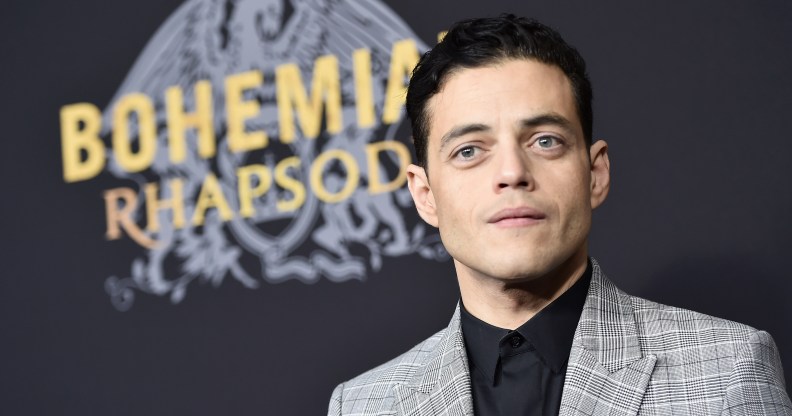
Rami Malek, who plays Freddie Mercury attends “Bohemian Rhapsody” New York Premiere at The Paris Theatre on October 30, 2018 (Steven Ferdman/Getty)
Rami Malek has said he “totally understands” why people have accused Bohemian Rhapsody of straightwashing and that he “would’ve loved to have incorporated more” of Freddie Mercury’s bisexuality into the film.
The star, who last week declined to say that Freddie Mercury was a gay icon, also U-turned on that stance, telling USA Today that the singer was “a gay icon, and an icon for all of us.”
Malek, who rose to prominence as the main character in Mr Robot, acknowledged the concerns of those who have said the film engages in bi-erasure with its portrayal of Mercury’s sexuality, including a scene in which his long-term partner Mary Austin tells him: “Freddie, you’re gay.”
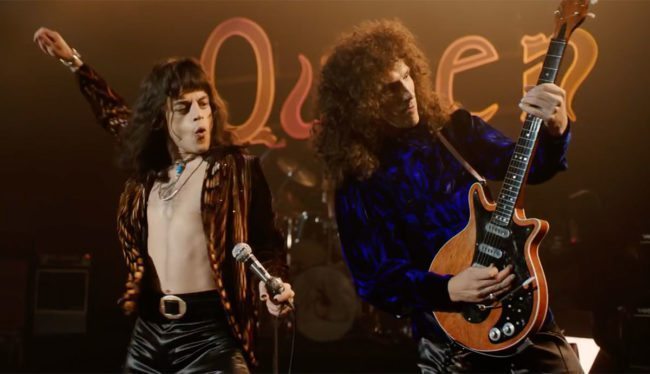
A shot from Bohemian Rhapsody (Twentieth Century Fox)
He said there were “conversations left and right” about how to include more of Mercury’s “beautiful relationship with Jim Hutton,” whose wedding band the singer died wearing.
“It was something I pushed for, to be quite honest, as much as possible and repeatedly brought to the attention of producers and directors and everyone who would listen,” Malek added.
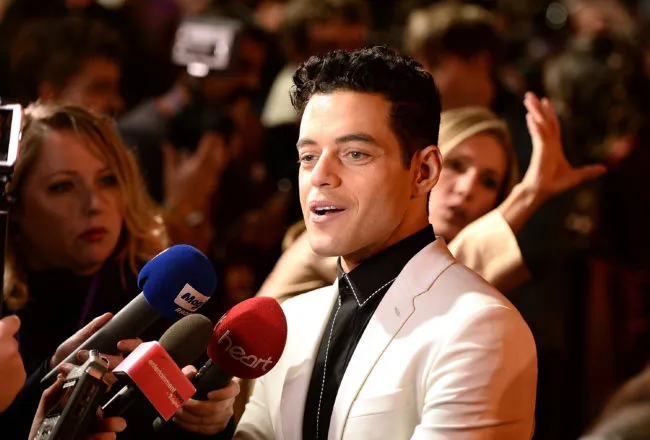
Rami Malek at the world premiere of Bohemian Rhapsody (Eamonn M. McCormack/Getty)
Hutton was Mercury’s partner from 1985—the same year the film finishes—until his death in 1991.
Malek continued: “I hope people do not feel that the film does a disservice to the community, and if it were me, I would’ve loved to have incorporated more.”
Former American Gods and Hannibal showrunner Bryan Fuller is among those who have hit out at the film, writing that the first trailer included “gay/bi superstar Freddie Mercury flirting with and twirling with a woman but no indication of his love of men?”
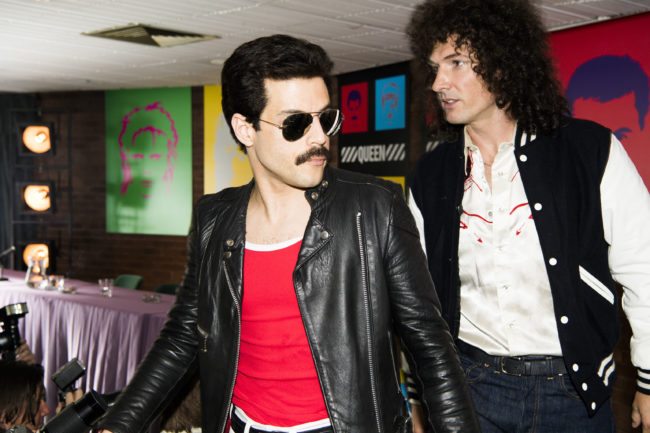
Rami Malek in the film (Alex Bailey/20th Century Fox)
He accused those in charge of the film of “#HETWASHING (hetero-washing) for marketing sakes.”
Fuller added: “I feel what the trailer is doing is queer-erasure. If they were out and proud with his bi-sexuality they would have indicated he was bi-sexual.”
The film, which has failed to impress critics, also faced a protest against NHS cuts and treatment of HIV at its London world premiere on October 23.
Campaigners from ACT UP London—a group fighting to end HIV—and the NHS Anti-Swindle Team, which wants to maintain a publicly run NHS, united to protest on the film’s purple carpet outside Wembley Arena.
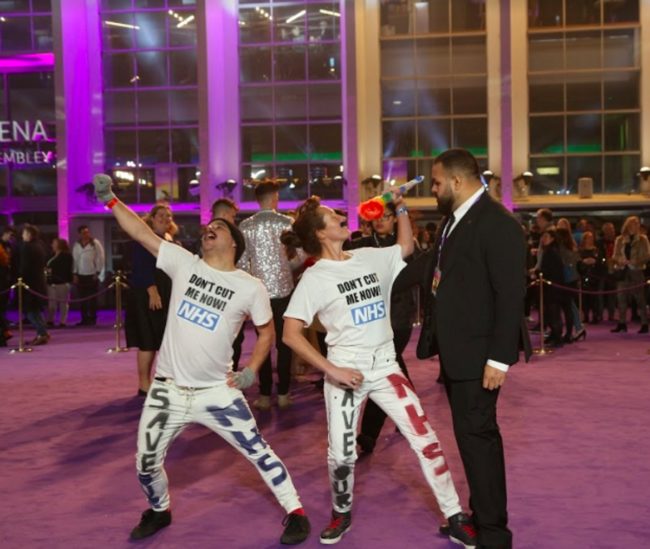
The protesters sang a version of “Don’t Stop Me Now” (Levi Hinds)
Dressed in clothes reading, “Save Our NHS,” the demonstrators chanted: “HIV stigma is real life—not just fantasy”—a play on the lyric from “Bohemian Rhapsody”—before launching into a specially written version of the hit Queen song “Don’t Stop Me Now,” called “Don’t Cut Me Now.”
They sang: “Don’t cut me now / I’m entitled to free healthcare / I don’t pay at all. Don’t cut me now / If I wanted US healthcare / I’d give Branson a call.”
“Don’t cut me now – ’cause we’re having a s**t time / Don’t cut me now – yes we’re having a sick time / I don’t wanna die at all!” the song concluded.

